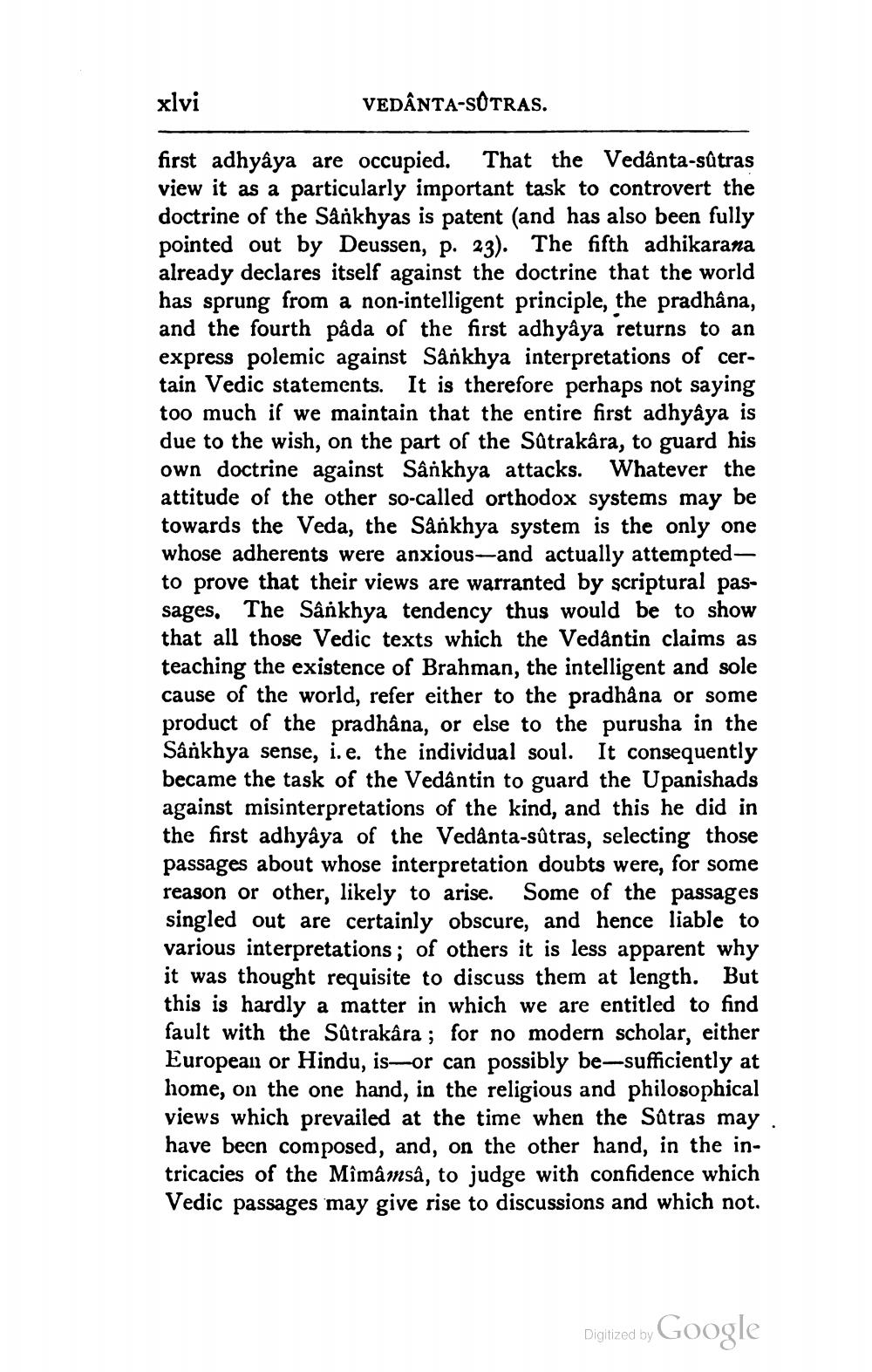________________
xlvi
VEDÂNTA-SOTRAS.
first adhyâya are occupied. That the Vedanta-sâtras view it as a particularly important task to controvert the doctrine of the Sankhyas is patent (and has also been fully pointed out by Deussen, p. 23). The fifth adhikarana already declares itself against the doctrine that the world has sprung from a non-intelligent principle, the pradhana, and the fourth pâda of the first adhyâya returns to an express polemic against Sankhya interpretations of certain Vedic statements. It is therefore perhaps not saying too much if we maintain that the entire first adhyâya is due to the wish, on the part of the Satrakâra, to guard his own doctrine against Sânkhya attacks. Whatever the attitude of the other so-called orthodox systems may be towards the Veda, the Sankhya system is the only one whose adherents were anxious—and actually attemptedto prove that their views are warranted by scriptural passages. The Sânkhya tendency thus would be to show that all those Vedic texts which the Vedantin claims as teaching the existence of Brahman, the intelligent and sole cause of the world, refer either to the pradhana or some product of the pradhâna, or else to the purusha in the Sankhya sense, i.e. the individual soul. It consequently became the task of the Vedântin to guard the Upanishads against misinterpretations of the kind, and this he did in the first adhyâya of the Vedanta-sútras, selecting those passages about whose interpretation doubts were, for some reason or other, likely to arise. Some of the passages singled out are certainly obscure, and hence liable to various interpretations; of others it is less apparent why it was thought requisite to discuss them at length. But this is hardly a matter in which we are entitled to find fault with the Sætrakâra ; for no modern scholar, either European or Hindu, is-or can possibly be--sufficiently at home, on the one hand, in the religious and philosophical views which prevailed at the time when the Satras may. have been composed, and, on the other hand, in the intricacies of the Mimâmsâ, to judge with confidence which Vedic passages may give rise to discussions and which not.
Digitized by Google




